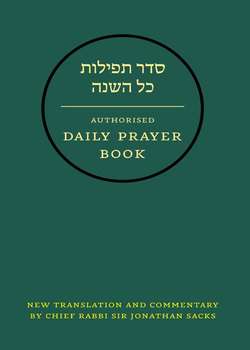Читать книгу Hebrew Daily Prayer Book - Jonathan Sacks - Страница 21
6. PRAYER AND MYSTICISM
ОглавлениеJEWISH MYSTICISM HAS PLAYED A major role in the prayer book. The most obvious examples are the passage from the Zohar, “Blessed is the name” (page 408), the Song of Glory (page 458) written by one of the medieval North European pietists, and the two songs written by the sixteenth-century Tzefat mystics associated with Rabbi Isaac Luria, “Beloved of the soul” (page 256) and “Come, my beloved” (page 266).
Less obviously, many of the early post-biblical prayers were deeply influenced by Hechalot (“Palace”) and Merkavah (“Chariot”) mysticism, two esoteric systems that charted the mysteries of creation, the angelic orders, and the innermost chambers of the Divine glory.
Undoubtedly, though, the most significant mystical contribution to the prayers is the Kedushah, said in three different forms, most notably during the Leader’s repetition of the Amidah. We have noted the two major tributaries of prayer: the spontaneous prayers said by figures in the Hebrew Bible, and the sacrificial service in the Temple. Mysticism is the third, and its most sublime expression is the Kedushah, based on the mystical visions of Isaiah (6) and Ezekiel (1–3). There are times in the prayers when we are like prophets, others when we are like priests, but there is no more daring leap of faith than during the Kedushah, when we act out the role of angels singing praises to GOD in His innermost chambers.
Familiarity breeds inattention, and we can all too easily pass over the Kedushah without noticing its astonishing drama. “The ministering angels do not begin to sing praises in heaven until Israel sings praises down here on earth” (Chullin 91b). “You”, said GOD through Isaiah, “are My witnesses” (Isaiah 43:10). Israel is “the people I formed for Myself that they might declare My praise” (43:21). We are GOD’S angels on earth, His emissaries and ambassadors. The Jewish people, always small and vulnerable, have nonetheless been singled out for the most exalted mission ever entrusted to humankind: to be witnesses, in ourselves, to something beyond ourselves: to be GOD’S “signal of transcendence” in a world in which His presence is often hidden.
This is a mystical idea, and like all mysticism it hovers at the edge of intelligibility. Mysticism is the attempt to say the unsayable, know the unknowable, to reach out in language to a reality that lies beyond the scope of language. Often in the course of history, mysticism has tended to devalue the world of the senses in favour of a more exalted realm of disembodied spirituality. Jewish mysticism did not take this course. Instead it chose to bathe our life on earth in the dazzling light of the Divine radiance (zohar, the title of Judaism’s most famous mystical text).
